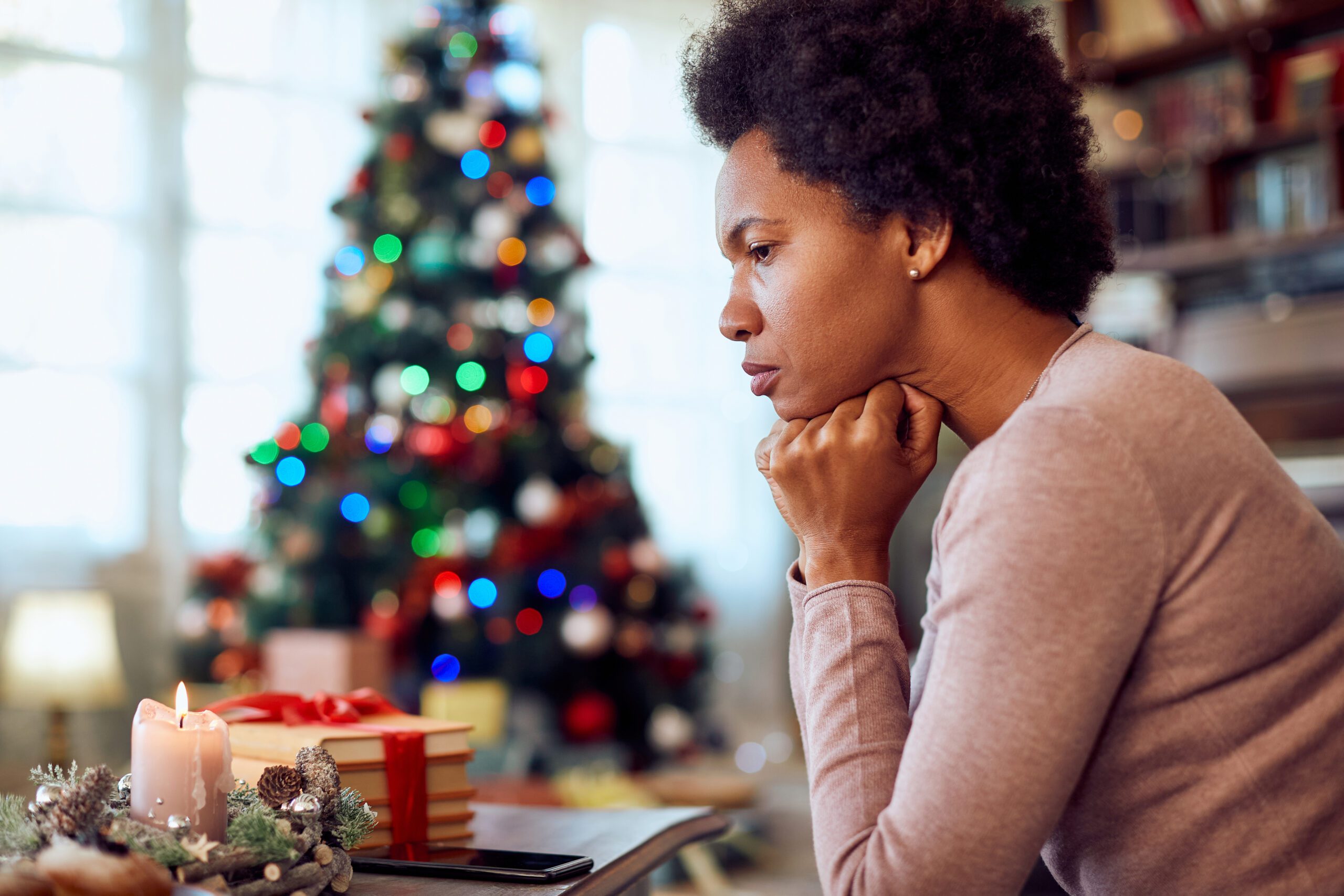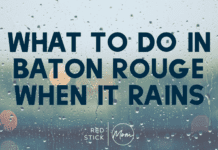Disclosure :: This post is sponsored by Ochsner Baton Rouge.
Why Am I Depressed During the Holidays?

The holidays are supposed to be happy. But maybe for you, the holiday season brings dread, sadness, depression, feelings of isolation and unhappiness. If you feel this way, you are not alone. Millions of people experience holiday depression beginning in the autumn and continuing through the new year. A few reasons why people get depressed during the holidays include the following:
Seasonal affective disorder typically occurs during the winter months (some people experience it in other seasons). This condition causes people to experience depression as the season begins; as the season ends, they slowly feel better. Since most major holidays happen during the winter, this condition can be debilitating and make it hard to enjoy holiday festivities.
Grief reminds people that loved ones are no longer alive. Since the holidays are huge for family gatherings, the deaths of loved ones are especially noticeable during this time. Grief has no timeline, and it often returns during special occasions. Remembering family and friends who are no longer alive can bring on sadness, feelings of loneliness and reflections of your mortality.
Physical/geographical distance is hard to deal with during the holidays. The pandemic forced people apart, even if they lived in the same city. People also move away for various reasons and may not travel to see each other in person. Whatever the reason, geographical distance can create a sense of isolation and sadness, leading to depression.
Relationship problems with family members are common. Disagreements may cause people to be cut out of family activities and can result in years of alienation. Being estranged from parents, siblings or extended family can lead to feelings of loneliness and abandonment. Even if a person does attend the family gathering, they may still feel alone, which can amplify unhappy or negative emotions.
Illnesses don’t take a break during the holidays. Some illnesses can feel more pronounced during the holidays because a person may feel limited in what they would like to do during this time.
An increase in obligations and responsibilities can cause a great deal of stress and anxiety. Holiday gatherings, shopping, cooking, work stress and family can take a toll on anyone. The holidays are hectic and stressful, which is a fact that is often ignored since people are expected to be happy and cheerful during the holiday season.
Money is a huge source of stress during the holidays. Between the pressure to provide gifts, decorate, cook expensive meals and potentially travel, the holiday season can cause people to feel like their money concerns are more pronounced, which can lead to feelings of stress, anxiety and depression.
How to cope with holiday depression
- Practice mindfulness by acknowledging your true feelings and emotions. Even if you express your feelings to yourself, expressing your emotions may relieve some distress. Consider meditation or other stress-relief techniques.
- Communicate with someone that you trust. It is beneficial to discuss your feelings. Seek professional help if you don’t feel that talking to a friend is enough. Talk to your primary care provider and make an appointment with a mental health professional.
- Challenge your expectations. Instead of living up to an image of what the holidays should be, think about what would make this time of the year better for you. What traditions would you like to skip? Do you prefer smaller gatherings? Would less shopping or decorating make things easier for you? What about ordering from a restaurant instead of cooking a full meal?
- Practice gratitude. Listing the things that you’re grateful for can help you feel better. You could even start a gratitude journal.
Help is available if you find yourself struggling beyond what you can manage on your own. Learn more about Psychiatry & Behavioral Health Services at Ochsner Health.
About the author





















